In Just 2 Years, This Gujarat Woman Revived 87 Lakes In Tribal Villages
Mittal Patel gave up the dream of becoming an IAS officer after she came in contact with the issues including employment, education and health plaguing in Gujarat’s tribal areas.
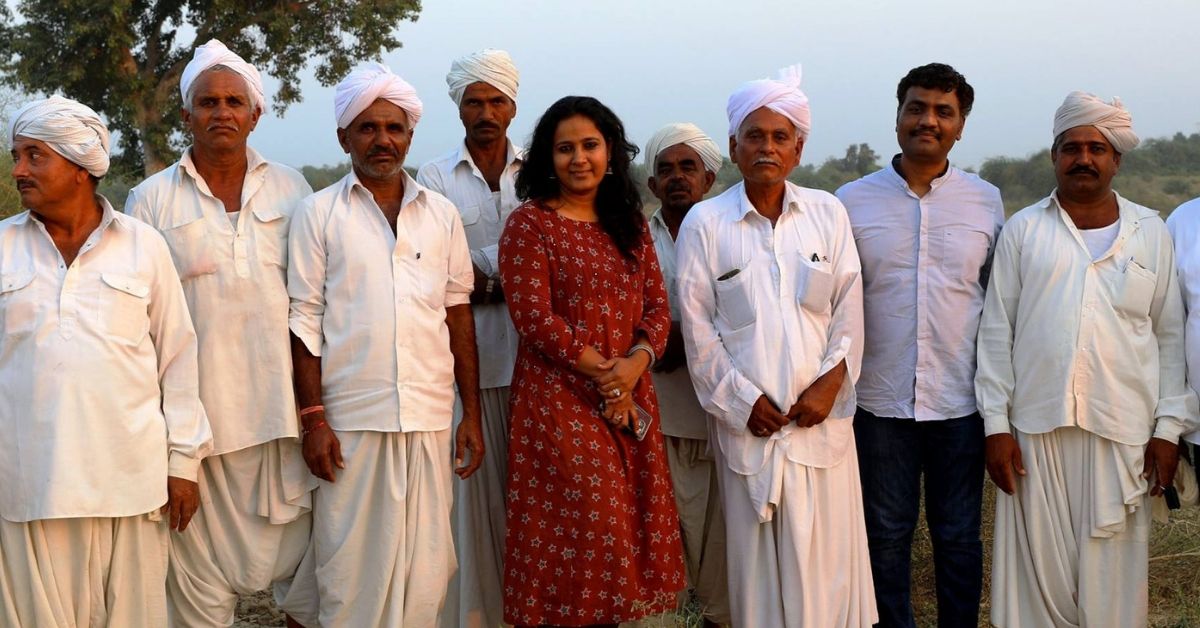
Having a khuli baithak (open meeting) regularly is a common phenomenon in Indian villages. Villagers come together, discuss a local issue and village heads try to resolve them.
The situation is no different in Gujarat’s Adhgam village, but a meeting in October 2018 was very unusual.
This Hard Water Softener at The Better India shop is an effective and easy solution to your hard water woes. Click here, to purchase it.
For about three hours, every villager intently listened to a lady. Although an outsider, she confidently spoke and assured the villagers about ending water scarcity in the region.
We can fully overcome the water problems here, but for that, I will need your support in every arena including finances, she concluded.
For nearly a minute, the villagers looked at each other in pin-drop silence until Valaba, the village head, cleared his throat and said, “It is important people wake up to the idea of uplifting their village, and we will support you in every way we can.”
It was not the first time when an entire village had shown solidarity and assured Mittal Patel that the issue would be resolved.
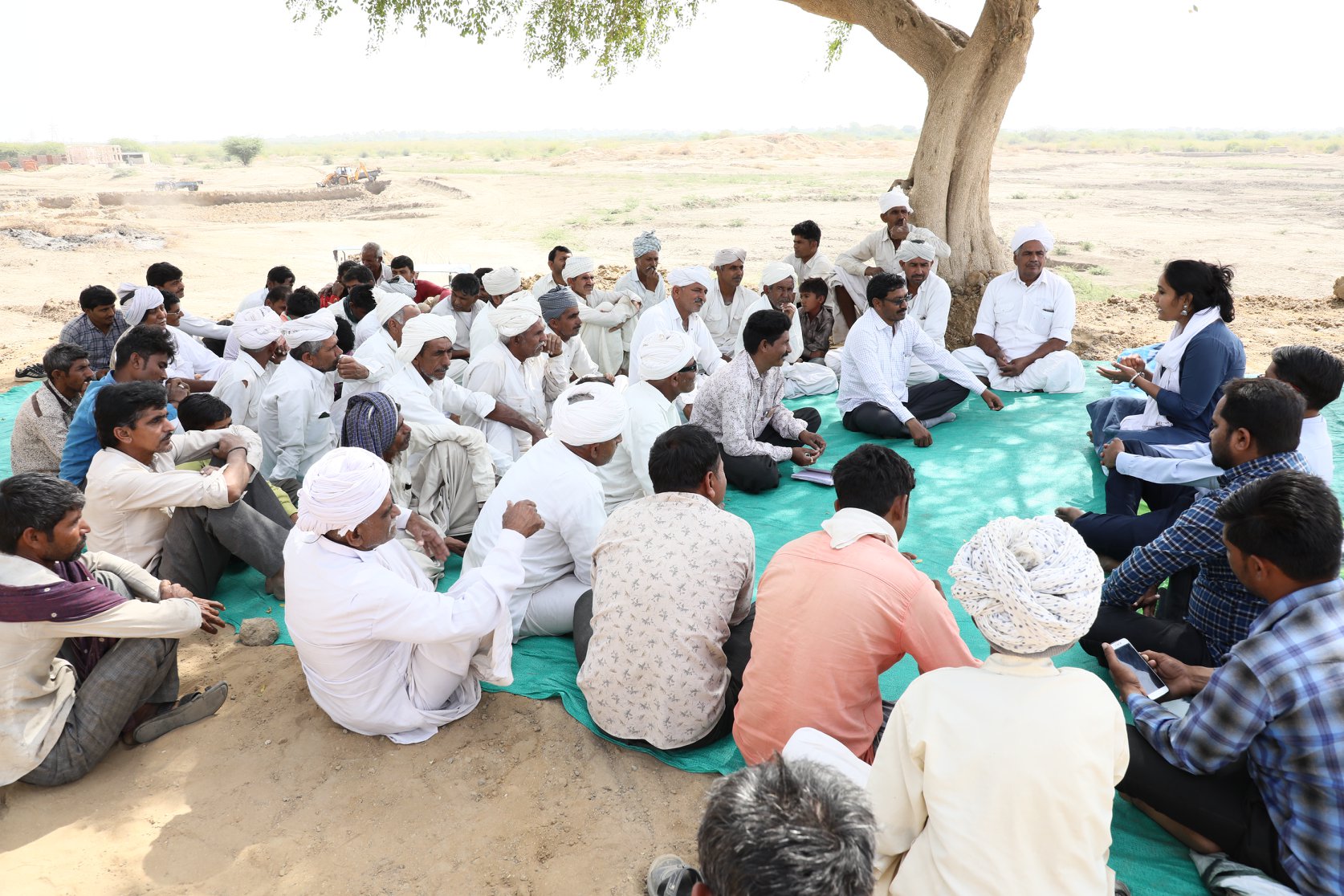
In less than two weeks, the revival process for the Motisar lake began by removing the Gando Baval trees (Acacia Nilotica) and unnecessary grass. In the process, the organisation made sure that no other tree was damaged in any way.
With help from earthmoving machines, the silt was removed from the surface of the lake and was given to the farmers to use it in their respective fields. Next, the lake was deepened by a few feet to increase its capacity for water storage.
In the final step, a saucer like shape was given to the lake by putting the soil on the boundary to prevent animals from accidentally falling in the lake when they drink water. Post the desiltation work; the lake was ready to store the rainwater.
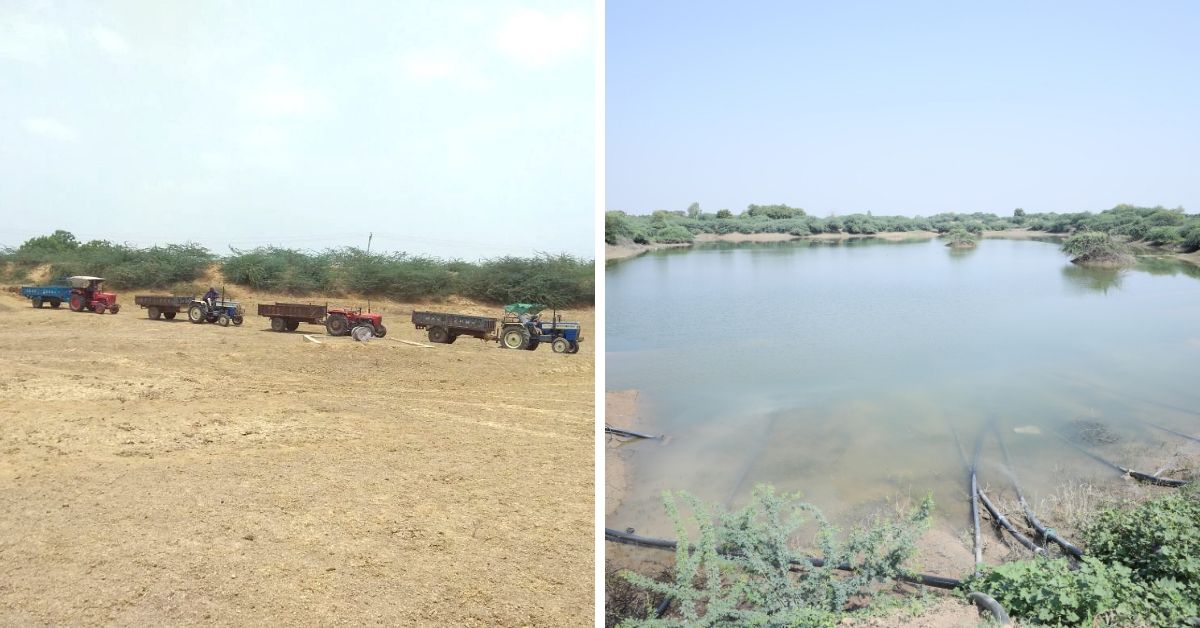
Adhgam is located in Banaskantha, a semi-arid district, and even though the process has not solved its water problems, the village lake did store the water that was released from the Narmada Canal and that was enough to fill it up and provide relief to the people.
The inhabitants of the 86 water-stressed villages of the district took the responsibility to conserve Earth’s most precious resource. Of course, not all the villages came on board in the first meeting itself. Some required a lot of convincing that the project is for their benefit, she tells The Better India.
Patel grew up with the dream of becoming an IAS officer. It was during her preparation for the competitive examinations in Ahmedabad when her perspective towards life changed drastically.
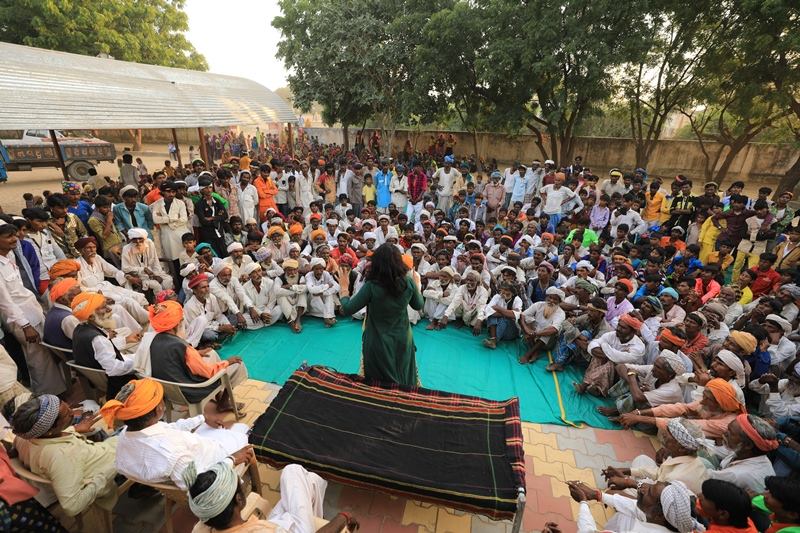
She enrolled herself in a journalism course at Gujarat Vidyapith while preparing for the exams, and as part of the course, she worked in various areas of the state.
Affected by the plight of the people, she let her IAS dream go and formed an NGO, Vicharta Samuday Samarthan Manch (VSSM) with an aim of advocating for the basic rights of nomadic and denotified tribes in Gujarat. You can read more about it here.
Among the several issues that she dealt with, water was also a significant problem that disrupted people’s daily activities, most importantly farming.
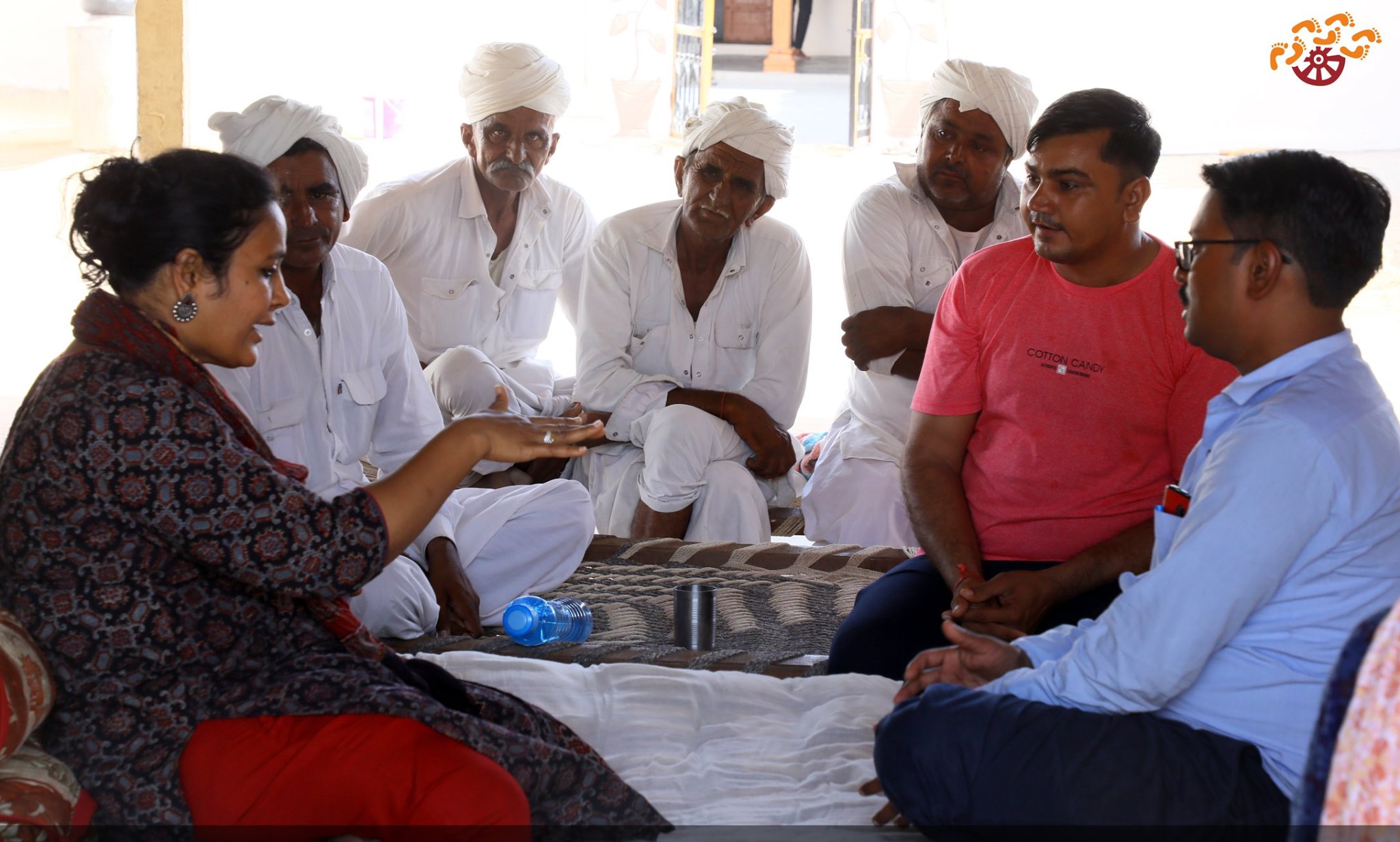
“The water problems in the various villages of Banaskantha district can be attributed to several reasons,” says Patel.
Elaborating further, she says, “The district is an arid area with sandy land and rainfall of around 15 inches per year. The depth in most of the borewells in the villages is about 900-1000 feet against and ideal depth of 100 feet. Reckless groundwater extraction to meet the non-drinking and farming needs of the village coupled with insufficient rainfalls have resulted in such an appalling situation. As for drinking needs, it comes from government pipelines but not every day.”
From her experience with working in the region, if there was one thing Patel had learnt, it was the strength of the community participation that could solve problems in the shortest time.
So Patel and her team of 7 field supervisors started visiting the villages in early 2015 to mobilize the people.
Community participation is the first thing that VSSM considers before implementing any activity. We also prioritize villages as per their economic and social reach. We take into account the farmer’s population as well, considering they require water the most, says Patel.
The fieldworkers visit the village and educate its inhabitants about the importance of water management and conservation.
Once the village comes on board, the JCB operator and the fieldworkers pack their bags and shift with the local families till the project is completed, “As a token of appreciation, the villagers provide us with accommodation and food throughout our stay, adds Patel, a recipient of Nari Shakti award
Like every initiative undertaken, this one too had its fair amount of challenges and difficulties, but none that Patel and her team could not overcome.
People in a few villages would back out last minute, and they would not dig the lake, and some village heads would even expect something in return for helping us. In terms of money, we struggled, and there have been days when it felt like it would all come crumbling down. However, we refused to give up as end-goal was benefitting the villagers, Prajakta, Programme Co-ordinator tells TBI.
Currently, the lake revival project is on hold due to the monsoons, and is expected to resume after the season is over. VSSM has set a goal to dig approximately 100 lakes by the next season.
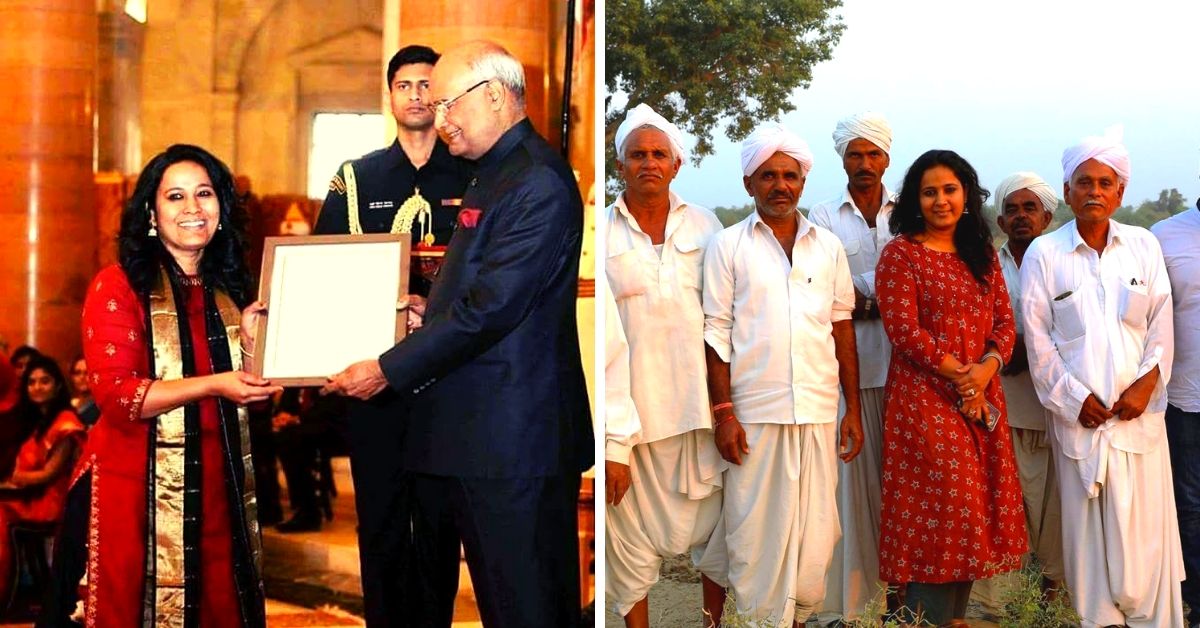
“Water is the most precious element on Earth. In the past, conserving it was of prime importance and making special provisions like ponds and lakes in water-scarce areas, was considered to be a noble work. Communities and village elders took care of common water sources. They followed an annual calendar of cleaning and desilting village wells and lakes. Even today, providing water to the thirsty is considered to be the most righteous work. We are just trying to keep that tradition alive,” concludes Patel.
The funding of the rejuvenation was done through donations from the villagers, individual donors and CSR activities. If you wish to contribute, please click here.
Featured Image Source: Mittal Patel/Facebook
Also Read: This Lake Reviver Is Helping 20+ Tamil Nadu Villages Solve Their Water Crisis
(Edited by Gayatri Mishra)
Like this story? Or have something to share?
Write to us: [email protected]
Connect with us on Facebook and Twitter.
If you found our stories insightful, informative, or even just enjoyable, we invite you to consider making a voluntary payment to support the work we do at The Better India. Your contribution helps us continue producing quality content that educates, inspires, and drives positive change.
Choose one of the payment options below for your contribution-
By paying for the stories you value, you directly contribute to sustaining our efforts focused on making a difference in the world. Together, let’s ensure that impactful stories continue to be told and shared, enriching lives and communities alike.
Thank you for your support. Here are some frequently asked questions you might find helpful to know why you are contributing?


This story made me
-
97
-
121
-
89
-
167













